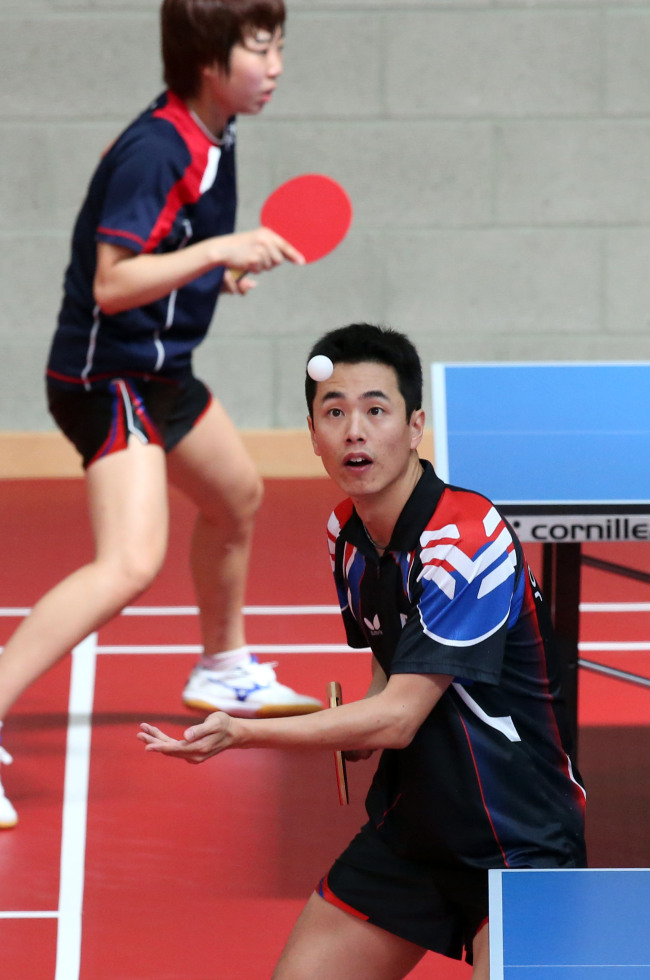 |
Table tennis star Joo Sae-hyuk (London Olympic Joint Press Corps) |
LONDON (Yonhap News) ― In the annals of the Summer Olympics, it could be argued that perhaps no country has dominated a single sport quite the way China has ruled table tennis.
Granted, the sport only became a medal event at the 1988 Olympics, but China has swept up 20 gold medals, including all four up for grabs at the 2008 Beijing Games. South Korea, with three titles, and Sweden, with one, are the only other countries with Olympic table tennis gold.
In the International Table Tennis Federation rankings for July, China has six of the top 10 male players and five of the top 10 female players.
None of this fazes Joo Sae-hyuk, the highest-ranked South Korean player at the London Games at No. 10.
Joo, 32, starts his singles play on Saturday, the day after the opening ceremony. In the draw, he’s slated to face world No. 1 Zhang Jike of China in the quarters.
Does it bother him that he has to potentially play the top-ranked player so early in the tournament?
“I don’t really care,” Joo said. “I have to go up against a Chinese player at some point at these Olympics. And when it’s Zhang Jike, I’m going right at him.”
Joo is 5-2 all-time against Zhang, a 24-year-old dynamo, but beat him 4-0 in their most recent meeting at the Hungarian Open earlier this year.
Joo, who has byes through the first two rounds as a sixth-seed, said he’s actually more worried about North Korean Kim Hyok-bong, his potential third round opponent.
“Kim can return cut shots pretty well, and that makes him a tricky player to handle,” Joo said. “First matches are always the most important. And results in singles can influence performances in team competitions. I have to get off to the right start.”
This is Joo’s second Olympics, and he’s come a long way since his first experience at the 2004 Athens Games. A defensive-minded player with sharp drives, Joo was the runner-up at the 2003 world championships but was knocked out of the round of 16 in both singles and doubles in Greece.
He came up short in the national team trials for the 2008 Olympics. This year, he clinched his Olympic berth comfortably as a top-10 player, but has had to cope with a rare form of autoimmune disorder called Behcet’s disease since March of this year.





![[Exclusive] Hyundai Mobis eyes closer ties with BYD](http://res.heraldm.com/phpwas/restmb_idxmake.php?idx=644&simg=/content/image/2024/11/25/20241125050044_0.jpg)
![[Herald Review] 'Gangnam B-Side' combines social realism with masterful suspense, performance](http://res.heraldm.com/phpwas/restmb_idxmake.php?idx=644&simg=/content/image/2024/11/25/20241125050072_0.jpg)

